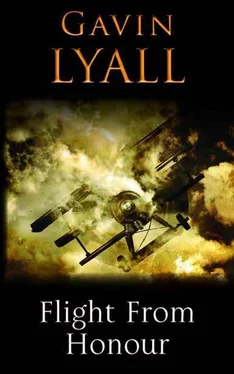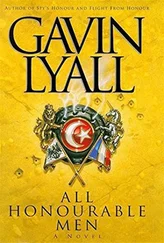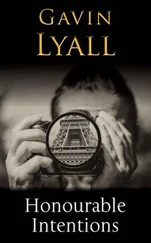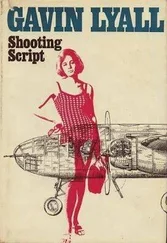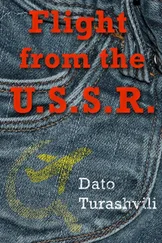Gavin Lyall - Flight From Honour
Здесь есть возможность читать онлайн «Gavin Lyall - Flight From Honour» весь текст электронной книги совершенно бесплатно (целиком полную версию без сокращений). В некоторых случаях можно слушать аудио, скачать через торрент в формате fb2 и присутствует краткое содержание. Год выпуска: 2013, Издательство: PFD Books, Жанр: Шпионский детектив, Исторический детектив, на английском языке. Описание произведения, (предисловие) а так же отзывы посетителей доступны на портале библиотеки ЛибКат.
- Название:Flight From Honour
- Автор:
- Издательство:PFD Books
- Жанр:
- Год:2013
- ISBN:нет данных
- Рейтинг книги:4 / 5. Голосов: 1
-
Избранное:Добавить в избранное
- Отзывы:
-
Ваша оценка:
- 80
- 1
- 2
- 3
- 4
- 5
Flight From Honour: краткое содержание, описание и аннотация
Предлагаем к чтению аннотацию, описание, краткое содержание или предисловие (зависит от того, что написал сам автор книги «Flight From Honour»). Если вы не нашли необходимую информацию о книге — напишите в комментариях, мы постараемся отыскать её.
Flight From Honour — читать онлайн бесплатно полную книгу (весь текст) целиком
Ниже представлен текст книги, разбитый по страницам. Система сохранения места последней прочитанной страницы, позволяет с удобством читать онлайн бесплатно книгу «Flight From Honour», без необходимости каждый раз заново искать на чём Вы остановились. Поставьте закладку, и сможете в любой момент перейти на страницу, на которой закончили чтение.
Интервал:
Закладка:
“The Ujedinjenje ili Smrt?”
“Sounds like. But Falcone wasn’t believing that so much. And me being just a bodyguard . . .”
Ranklin took the point: O’Gilroy had done right to play the part of a simple ‘bravo’. “Have you any idea how someone contrived to make the aeroplane crash?”
“We was talking about that on the boat. Falcone reckoned they’d got at it in the night – ’twas only in a wooden shed – and loosened the bolts holding the engine on. Ye could do that and pack the gaps with something, scraps of wood or metal, so it’d hold firm a while but gradual-like the scraps’d fall out. Then, when ye give the engine a jolt, like sudden switching on again, the turning weight of it’d tear it right off. Anyhow, the bolts did give way,” he added sombrely. ”I saw it.”
“It certainly sounds a bit technical for that Serbian gang. They’re usually simple bomb-and-bullet people.”
O’Gilroy nodded. “What Falcone said. Puzzled, he was. But he asked something else: did I have any idea how he’d get in touch with our Secret Service.” O’Gilroy had a sly smile waiting for Ranklin’s astonishment.
“He-? So what did you say?”
“Said l’d ask around.”
“You told the Major that, of course?”
“Surely. He said he’d talk to yourself about it. And Falcone wants to go to Brooklands aerodrome this weekend so I thought mebbe I’d go down with him. The Major said Fine to that, stay in touch with him.”
Ranklin found himself nodding absently. It was lucky that O’Gilroy had become a recent convert to aeronautics – although entirely predictable. Anything new and mechanical seemed to O’Gilroy a sunbeam from some bright future; perhaps Irish back streets left you with little longing for the past. In the last few weeks he had wallowed in technical magazines about flying and even, Ranklin suspected, made surreptitious enquiries about learning to fly.
Ranklin took out his watch. “Then if you’ve nothing else to do, take a couple of our new boys out and teach ’em how to shadow each other. Try not to lose them permanently.”
O’Gilroy stubbed out his cigarette, glanced at his own watch – he had, of course, one of the new and unreliable (Ranklin thought) wristwatches – then collected his legs and arms and rambled out. Ranklin stared down at the paper on which he had written Most important to . . . and tried to recall what had been so important ten minutes ago.
He was still trying when the buzzer from the Commander’s room rang. It was a rather peremptory arrangement, but inevitable once the sound-proof door had been fitted. He tucked the paper into an inside pocket – another newly acquired habit – and went in.
Dagner had several Naval log-books, presumably the ones the Commander seemed to use as his personal records system, spread across the table. Desks were rare in Army life; they suggested bankers, civil servants, a permanent commitment to shuffling papers.
“Firstly, do you know anything about this Sir Caspar Alerion who’s coming to give us a talk next Monday? – should I have heard of him?”
“I think he’s just some crony of the Commander’s. He’s a retired dip. I mean diplomatist,” Ranklin added quickly, “not dipsomaniac. At least, I think it means that in his case. From what the Commander said, his career was a bit . . . well, it lasted as long as it did because he comes of a good family. They didn’t mind the drink and women so much, but he dabbled in espionage and that upset his ambassadors. His last posting was Rome, then he exchanged to the Foreign Office in London, and resigned six or eight years ago.”
“It sounds as if he could be interesting, then. If there’s any arrangements needed, could you . . .? Thank you. Now-” he glanced down at the log-books again; “-just remind me of how many agents the Bureau actually has, will you?”
Ranklin stood there, nodding gently. “Ah. He didn’t tell you, either.”
By now, Ranklin had begun to recognise degrees and variations in Dagner’s lack of expression. This time, he might – just might – be struggling to retain control. And, of course, winning. After a time, he pushed his chair back and said quietly: “Then that’s one secret we can’t give away. D’you think it’s written down anywhere?” He looked around the cluttered office – but the clutter all seemed to be telephones, models of futuristic warships, naval gadgetry and the Commander’s collection of pistols.
“Not unless it’s in those log-books,” Ranklin said. “Frankly, I think he keeps it all in his head.”
“Which, by tonight, will be in Germany.” Dagner stared at the table-top for a few moments more, then reached for his uniform jacket. “I’ve breathed all the air in here a dozen times already. I’m going for a walk. And you’re coming with me.”
They crossed the endless belt of honking traffic in Whitehall, went through the arch of the Horse Guards and on to the parade ground itself. This was the very heart of the Empire’s military and naval bureaucracy and Dagner’s uniform meant he was saluting in all directions, majors being mere groundlings in this theatre.
The uniforms thinned out as they reached the edge of St James’s Park, its trees still green but now dulled with dust and rustling dryly as they waited for the collapse of autumn.
“How many agents,” Dagner said abruptly, “do you know we have abroad at this moment?”
Ranklin sorted his experience. “From the reports I’ve seen, we have one, I think permanently, in St Petersburg. And somebody in Cairo, and I think Germany, but I don’t know where.”
“And that’s all?”
“All I know of.” He felt he ought to say more. “Actually getting people on to our establishment, like O’Gilroy and myself and now the new boys, seems to be quite recent. Until now, I think what happened was that the Commander ran into a chap who’s interested in Intelligence and had some money of his own, gave him dinner at one of his clubs – and sent him off somewhere to look at something. He wasn’t paid or reimbursed from our funds, we didn’t see him in the office, we may see his report – if he doesn’t wind up in jail somewhere. Is he one of ours or not?”
“I see. And that’s how the world-famous British Secret Service works.” Ranklin wasn’t imagining the bitterness any more than Dagner was hiding it. “Did it surprise you, too, when you joined?”
“It did, rather.”
Dagner stopped and looked back through the trees at the jumbled skyline of the Horse Guards and Whitehall. “There must be a dozen departments in those buildings, all with budgets and staffs bigger than us, and all doing damn-all but churn out paperwork for each other to file in the wrong place. And I learn that K at MO5 only got his majority last month – forgive me, Captain.” But Ranklin was just as gloomy that the head of the nation’s spy-catching service, currently codenamed MO5, was only one recent rank above himself.
Dagner went on: “I grew up on legends of the British Secret. Invincible, all-pervasive . . . Well, I’ve learnt not to trust legends like that, but to find the whole thing was a myth until three years ago . . . In India we’ve been organised for decades. What happened before the Bureau was founded?”
“The Army and Navy had – and still have – their own specialised Intelligence departments. The Navy looks at harbours and fleets, the Army at other armies. And the Foreign Office decides who are heroes and villains. I think,” Ranklin said tentatively, “the idea was that we needed a more catholic approach, someone to look at potential enemies’ industry and economy and financial strength, as well as just counting uniformed heads.”
Читать дальшеИнтервал:
Закладка:
Похожие книги на «Flight From Honour»
Представляем Вашему вниманию похожие книги на «Flight From Honour» списком для выбора. Мы отобрали схожую по названию и смыслу литературу в надежде предоставить читателям больше вариантов отыскать новые, интересные, ещё непрочитанные произведения.
Обсуждение, отзывы о книге «Flight From Honour» и просто собственные мнения читателей. Оставьте ваши комментарии, напишите, что Вы думаете о произведении, его смысле или главных героях. Укажите что конкретно понравилось, а что нет, и почему Вы так считаете.
